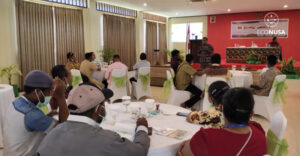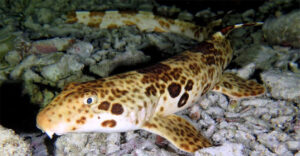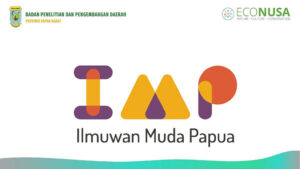
Sago has special value for the people of Papua. Not only for food needs, sago trees are also used for board needs. Sago fronds, for example, are used as building material for building walls. This midrib is also the raw material for making mats, which has an important function in a residence.
The use of sago material for this building, is applied by the Raja Ampat Indigenous People and Livelihood Association (PERJAMPAT) in 114 lodging buildings that they manage in the Raja Ampat tourist area.
Considering the importance of sago, PERJAMPAT initiated replanting sago in Manyaifun Village, South Waigeo District, Raja Ampat Regency, West Papua Province. The replanting program was carried out on an area of one hectare, with the assistance of the EcoNusa Foundation.
The Community Initiative Officer of the EcoNusa Foundation Samuel Wospakrik said, an inn measuring six times four meters requires 100 to 200 sago trees to make a roof. In fact, one sago tree only produces five to eight trees. “Apart from the local home stay, the resort also uses sago leaves. So they ask people to take sago leaves, they pay, “Samuel said.
The sago tree replanting program was designed in October 2018, the process of planting took place for a month in January 2019. In addition to joint planting in one location, the community also brought sago seeds to be planted in their respective family environments. “Bringing home the seeds to be planted again is their initiative,” Samuel explained.
For Timotus Membraku, one of the lodging managers, replanting sago trees is a form of preparation for the next generation. With the existence of land and sago trees that grow, according to him, future generations can cultivate land to support life. “They manage to make money, so the results can be used to buy family needs such as sugar and soap,” he said.




